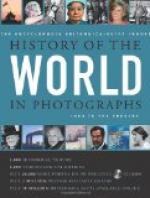ANGLESEY, ARTHUR ANNESLEY, 1st EARL OF (1614-1686), British statesman, son of the 1st Viscount Valentia (cr. 1621) and Baron Mountnorris (cr. 1628), and of Dorothy, daughter of Sir John Philipps of Picton Castle, Pembrokeshire, was born at Dublin on the 10th of July 1614, was educated at Magdalen College, Oxford, and was admitted to Lincoln’s Inn in 1634. Having made the grand tour he returned to Ireland; and being employed by the parliament in a mission to the duke of Ormonde, now reduced to the last extremities, he succeeded in concluding a treaty with him on the 19th of June 1647, thus securing the country from complete subjection to the rebels. In April 1647 he was returned for Radnorshire to the House of Commons. He supported the parliamentary as against the republican or army party, and appears to have been one of the members excluded in 1648. He sat in Richard Cromwell’s parliament for Dublin city, and endeavoured to take his seat in the restored Rump Parliament of 1659. He was made president of the council in February 1660, and in the Convention Parliament sat for Carmarthen borough. The anarchy of the last months of the commonwealth converted him to royalism, and he showed great activity in bringing about the Restoration. He used his influence in moderating measures of revenge and violence, and while sitting in judgment on the regicides was on the side of leniency. In November 1660 by his father’s death he had become Viscount Valentia and Baron Mountnorris in the Irish peerage, and on the 20th April 1661 he was created Baron Annesley of Newport Pagnell in Buckinghamshire and earl of Anglesey in the peerage of Great Britain. He supported the king’s administration in parliament, but opposed strongly the unjust measure which, on the abolition of the court of wards, placed the extra burden of taxation thus rendered necessary on the excise. His services in the administration of Ireland were especially valuable. He filled the office of vice-treasurer from 1660 till 1667, served on the committee for carrying out the declaration for the settlement of Ireland and on the committee for Irish affairs, while later, in 1671 and 1672, he was a leading member of various commissions appointed to investigate the working of the Acts of Settlement. In February 1661 he had obtained a captaincy of horse, and in 1667 he exchanged his vice-treasuryship of Ireland for the treasuryship of the navy. His public career was marked by great independence and fidelity to principle. On the 24th of July 1663 he alone signed a protest against the bill “for the encouragement of trade,” on the plea that owing to the free export of coin and bullion allowed by the act, and to the importation of foreign commodities being greater than the export of home goods, “it must necessarily follow ... that our silver will also be carried away into foreign parts and all trade fail for want of money."[1] He especially disapproved of another clause in the same bill forbidding the importation of Irish cattle into




